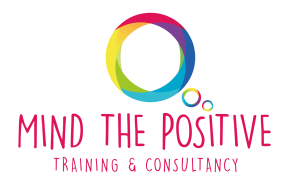Outstanding Leadership Through Positive Development Approach
Being a leader in today’s challenging world is quite a difficult role. It requires self-accountability, engagement, and will. It involves empowering others, rather than exercising power. Regardless of duty or work position, in essence, leaders have a responsibility and a sense of ownership derived from internal locus of control. Most leaders take a leadership role due to their job requirements, and ‘do the right thing’, rather than ‘doing things right!’ Meanwhile, some assume leadership beyond authority, by taking further initiatives beyond their task-role, due to their sense of responsibility, involvement, and care for deed doing. I would call them as ‘outstanding leaders’. Who may these outstanding leaders be? What differentiates them from others? How can you be one? Is it your skills, yours sources of power, motivation…? Perhaps your calling…
Not long ago, leadership research has tried to explain leadership by distinguishing leaders from managers; today further differentiation is made among leaders, highlighting outstanding leaders on the basis of humanistic and positive development approach. Long-years’ research and investigation sought to solve the dilemma of “leaders born or made”, to understand leaders’ power sources, and to identify the critical roles leaders played while influencing followers. In essence, it’s been concluded that, while managers, through their positional power, produce order and consistency –i.e. planning, organizing, staffing, controlling and problem solving; leaders, using both positional and personal power sources, produce change and movement –i.e. establishing vision and direction, aligning, inspiring and empowering people. Furthermore, leadership has been identified as a dispositional trait open for development, where some leaders are born, and with the adequate nurturing, all leaders can be made! Hence, with the humanistic approach, the scientific and technological developments, changes in the social and work life culture, and the growing demand for higher sense of responsibility, consideration of leadership and leader’s role shifted towards nurturing and development of human skills, resources and attitude.
“Leadership is not defined by the exercise of power but by the capacity to increase the sense of power among those led. The most essential work of the leader is to create more leaders.”
– Mary Parker Follet.
Today, leaders’ role is shifting from ‘leader-follower relationship’ towards ‘leader-follower empowerment’, which involves producing self-engaged and committed leaders out of own followers. Here lies the question “How?” How would you, as a leader, both meet the needs of the society and empower your followers –let’s say the subordinate, when are expected to deliver an outstanding leadership? This is a great challenge… Being a leader is already challenging enough! So, naturally, outstanding leadership may seem beyond your ability. The truth, it is not! It simply requires certain personal skills and characteristics, such as authenticity, social and emotional intelligence, self-engagement, mindful attitude, and passion, which you may nurture and embody all in one! These characteristics, in essence, are the foundation to your ‘Personal Power1’ that you use as source for your leadership. No such leader is born overnight, however through positive development approach, they are made!
So, let’s get back to ‘how.’ According to research2, leaders with high level of positive psychological capacities (hope, optimism, resilience, self-efficacy), and self-awareness and self-management skills, have greater ability to exert authentic leadership. Such leadership style involves genuine, transparent relationship and future oriented behavior, and enables positive motivational direction and empowerment –that is the critical elements for change making and leader creating. Perhaps among the most prominent example from field of practice is Google’s Search Inside Yourself Leadership3 (SIYL) program. Since 2007, Google has been cultivating social and emotional intelligence, in cooperation with mindfulness4 practices. Why? To achieve stellar work performance, outstanding leadership, and well-being at Google.
It all began through identifying the magical touch of emotional intelligence and mindfulness: that these skills make people better leaders, who create positive work climate, more emotionally expressive, genuine and more sociable, friendlier and more democratic, more cooperative, more likable, and ‘fun to be with’, more appreciative and trustful5; and that these practices cultivate mindful attitude, develop self-regulation and management skills, and foster internalized positive attitudes and behaviors, such as empathy, awareness, compassion, openness, curiosity, and acceptance without judgment6.
“What you do makes a difference, and you have to decide what kind of difference you want to make.”
–Dr. Jane Goodall
That is not all! In fact, these interventions foster and flourish another important personal characteristics for outstanding leadership –self-engagement. Self-engaged leader has a very high sense of responsibility, commitment, and accountability over his/her work, such that own performance, as well as the outcome matters a great deal7. In a way, it brings forth the awareness of one’s calling; which involves the energy, power and motivation to making a difference; dedicating time and effort for meaningful and purposeful cause, finding ways to be able to do what he/she does, and feeling that what he/she does is the right thing to do! So, such interventions for positive development serve not only to the development of authenticity and outstanding leadership skills in current leaders, but also to the creation of new and more leaders.
“The person who influences me most is not he who does great deeds but he who makes me feel I can do great deeds.”
–Mary Parker Follet.
Follet8, long years ago, has expressed the vitality of leader’s role in transforming followers into leaders, and inspiring them to great leadership. Although it’s been precisely 100 years after her words, both academia and practice world still discuss leader’s influential role, and seek ways for establishing outstanding, empowered, and empowering leaders. I believe we have progressed immensely in the past century, through shifting from exercising power to increasing sense of power in followers; from employing positional power to enhancing personal power, and from authority as means of influence to using knowledge for mutual growth and development.
You might now be wondering about your place and state of being… Where are you, as a leader? You may be an influencer who brings out the leader in others. Or, you might be an influencer who has been created by an outstanding leader… Or, you are simply struggling to nurture your leadership skills, going along a lonely path, without the empowerment of a leader! No matter your position or field of authority, no doubt that you are an influencer at a leader’s role. How I know it? You have read these lines, all the way till the end! And I believe that once you take the ride of positive development approach, grow your awareness on your self-engagement level for what matters to you; cultivate your positive characteristics, such as empathy, mindful attitude, compassion, gratitude, together with positive psychological capacities, the outstanding leader deep within you will naturally surface, blossom and flourish.
Good luck and enjoy the ride!
How? By…
- Being fully aware of your resources, skills, abilities, aspirations, values and causes that matter to you.
- Identifying the meaning and purpose to your efforts, in making what you do.
- Predicting the source of the energy, motivation and power to do what you do.
- No matter what, doing the right thing, rather than doing things right.
- Making a difference, for the benefit of yourself and all around you.
- Empowering the sense of self-engagement and passion for what you do.
- Cultivating positive psychological capacities, social and emotional intelligence skills, and positive developmental approach, through receiving support – such as training, coaching, mentoring, etc.
- Instilling and nurturing all the above in others, so as to create new outstanding leaders.
1 French and Raven’s Five Forms of Power – Understanding where power comes from in the workplace.
2 Luthans, F. and Avolio, B.J. (2003) Authentic Leadership: A Positive Developmental Approach. In: Cameron, K.S., Dutton, J.E. and Quinn, R.E., Eds., Positive Organizational Scholarship, Barrett-Koehler, San Francisco, 241-261.
3 Tan, C. M. (2014). Search Inside Yourself, the unexpected path to achieving success, happiness (and world peace), HarperCollins, e-book.
4 Understanding Mindfulness, Dr. Shirli Ender Buyukbay, August 7, 2017
5 Bachman, W. (1988). Nice guys finish first: A SYMLOG analysis of U.S. Naval commands. In R.B. Polley, A. P. Hare, & P.J. Stone (eds.). The SYMLOG practitioner, 133-153. New York: Praeger.
6 Shapiro, D. (1992). A preliminary study of long term meditators: Goals, effects, religious orientation, cognitions. Journal of Transpersonal Psychology, 24, pp. 23-39.
7 Britt, T.W., Dickinson, J. M., Greene-Shortridge, T. M. & McKibben, E. S. (2007). Self Engagement at work. In Positive Organizational Behavior Ch. 11, edited by Nelson, D.L. & Cooper, C. L., Sage Publication, London.
8 Mary Parker Follet, The New State (1918)

